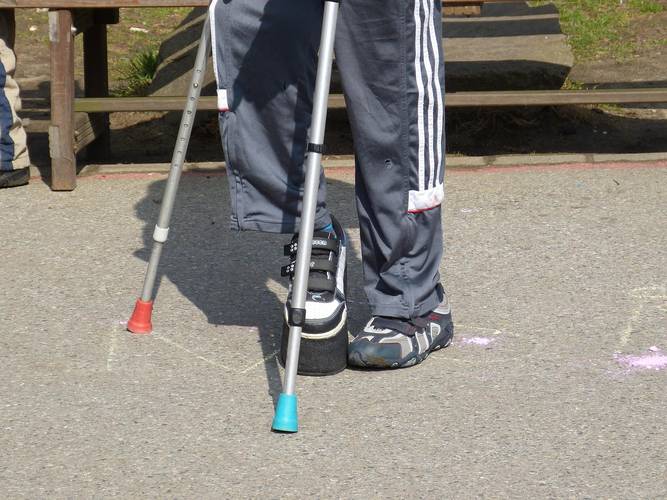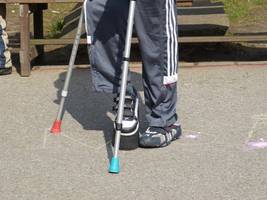The Ombudsman assessed the conduct of the Maribor Regional Unit of the Institute for Pension and Disability Insurance of Slovenia in the event of an unannounced visit to the complainant as a violation of the principle of good management. In addition, the Ombudsman found that in the case of the complainant, the statutory deadline for decision-making had been exceeded and thus a violation of the principle of legality.
* * *
The complainant approached the Ombudsman of the Republic of Slovenia (Ombudsman) complaining about the lengthy decision-making process of the Maribor Regional Unit of the Institute for Pension and Disability Insurance of Slovenia (Institute) on her request for recognition of the right to allowance for assistance and service (request). In relation to the processing of her request, the complainant explained that she had received a notification from the Institute that an expert doctor, who was supposed to carry out a personal examination of the complainant, had visited her twice at her home. The complainant claimed that the expert doctor's visit had not been announced and that she was unable to open the front door due to her state of health, and the above-mentioned unit of the Institute subsequently asked her to explain in writing the reasons why she was not at home. The complainant contacted the above-mentioned unit of the Institute by telephone for clarification regarding the summons she received, and there they explained to her that if she is not at home when the expert doctor next visits, the procedure will be stopped.
In the proceedings, the Ombudsman explained to the Institute that he had called the complainant, but he did not have exact information on when the expert responsible for the personal examination made his visit. In this regard, the Ombudsman could not accept the Institute's explanations that the visit was carried out unannounced, because due to the nature and method of work of the experts, an accurate prediction of the timeline was impossible. Announcing the exact date of arrival may in fact represent a disproportionate burden, but this cannot be the case for announcing at least an approximate range of the visit date.
Paragraph 7 of Article 34 of the Rules on the Organisation and Mode of Operation of the Expert Bodies of the Institute for Pension and Disability Insurance of Slovenia (Rules), adopted on the basis of Paragraph 7 of Article 181 of the Act on Pension and Disability Insurance (ZPIZ-2),[1] stipulates that if the insured persons cannot come to the headquarters of the disability commission due to a deterioration in their health, an expert doctor can perform a personal examination of the insured person at the insured person's home or at a suitable institution.
According to the Ombudsman, the stated provision is intended to enable insured persons who cannot come to the headquarters of the disability commission due to a disability or their health condition to be able to have a personal examination at home or at a suitable institution. Although the aforementioned legal basis does not determine the method of communication between experts and the insured person, this does not mean that the expert is not obliged to inform the insured person about the scheduled date of the personal examination at home.
From the point of view of economy and efficiency of the procedure, in the Ombudsman's opinion, it would undoubtedly be more rational if the insured person's expert, taking into account the circumstances of the specific case, informed the insured person of the expected date of the in-person examination at home and the approximate time of the examination, and in this way to check whether the insured person will be at home on the scheduled day. From the point of view of the principle of good management of the body, this would also mean that the insured person would have the opportunity to prepare and arrange for the examination at home, depending on their state of health. An insured person who undergoes a personal examination at home or at an appropriate institution cannot be in a worse position due to an unannounced visit than an insured person who undergoes a personal examination at the headquarters of the disability commission.[2] Given that the Institute has explained that it is facing a shortage of medical personnel, in the opinion of the Ombudsman, the above would be more expedient also from the point of view of scheduling expert doctors who are available to perform home visits.
The Ombudsman was also not convinced by the Institute's explanation regarding the purpose for which the complainant was asked to explain where she was on the day of the visit by the disability commission expert. A possible unjustified absence of the insured person at home, assuming that the insured person had been informed in time and properly at least about the approximate range of the home visit date, in the Ombudsman's opinion, could at most mean that, using the analogy, the panel of the first-level disability commission would have given an expert opinion only based on the collected documentation.
The Ombudsman assessed the aforementioned behaviour of the Institute as a violation of the principle of good management.
The Ombudsman also noted in the proceedings that the complainant's request was decided within seven months after the request was submitted. As a reason for the lengthy decision-making process on the request, the Institute cited primarily the complainant's non-cooperation in the procedure, which the Ombudsman could not accept, taking into account the above-mentioned findings. The Ombudsman thus concluded that in the case of the complainant, the deadline from Article 179 of the ZPIZ-2 had been exceeded,[3] as a result of which he assessed that the Institute violated the principle of legality.
Based on the findings in the complainant's case, the Ombudsman proposed that the Institute harmonise (and rationalise) the method of notifying the insured person about the date of the planned personal examination at home and to adopt other appropriate organisational and personnel measures for timely decision-making. The Institute responded to the Ombudsman's proposal and stated that medical experts who visit insured persons' homes will be asked to make a prior announcement before the visit, either by calling the insured person themselves, or by asking the administrators of the disability commission to ensure the insured person or a relative is informed of the arrival of the expert doctor. The Ombudsman welcomes this. In relation to the Ombudsman's second proposal, the Institute explained that it examines and deals with cases in which the duration of the procedure is longer, and also takes measures based on the assessment of the situation. The Institute also informed the Ombudsman about personnel and organisational changes in the field of expertise. According to the Institute's assessment, the aforementioned activities have a greater impact on the results of the work of the Sector for Expertise, i.e. they reduce the average duration of procedures compared to previous periods, which the Ombudsman also welcomes. 9.2-11/2023
[1] Paragraph 7 of Article 181 (ZPIZ-2) defines that the institute shall determine the organisation and mode of operation of the institute's expert bodies by means of a general act. This act also determines the list of mandatory medical and work documentation, which is required for providing an expert opinion.
[2] The insured person, who undergoes a personal examination at the headquarters of the disability commission, is informed of the scheduled date of the personal examination and, for this purpose, receives an invitation to the personal examination by registered mail. In such a case, the insured person is also warned that if they cannot attend the personal examination for excusable reasons, they can notify the IK before the hearing date and request a new examination date. The contact person is stated on the invitation to the personal examination. If the insured person unjustifiably does not respond to the personal examination despite the invitation, the Senate of the First Level Disability Commission can provide an expert opinion based on the collected documentation.
[3] Paragraph 1 of Article 179 of the ZPIZ-2 stipulates that the competent body of the institution must issue a decision no later than four months from the date of initiation of the procedure, in the event that an expert opinion is required to establish rights or in an appeal procedure. Paragraph 2 of the same article stipulates that a decision on pension and disability insurance rights using international treaties shall be issued within six months. Within six months, a decision is also issued in the appeal proceedings, which are conducted against the decisions issued in the proceedings from the previous sentence.

